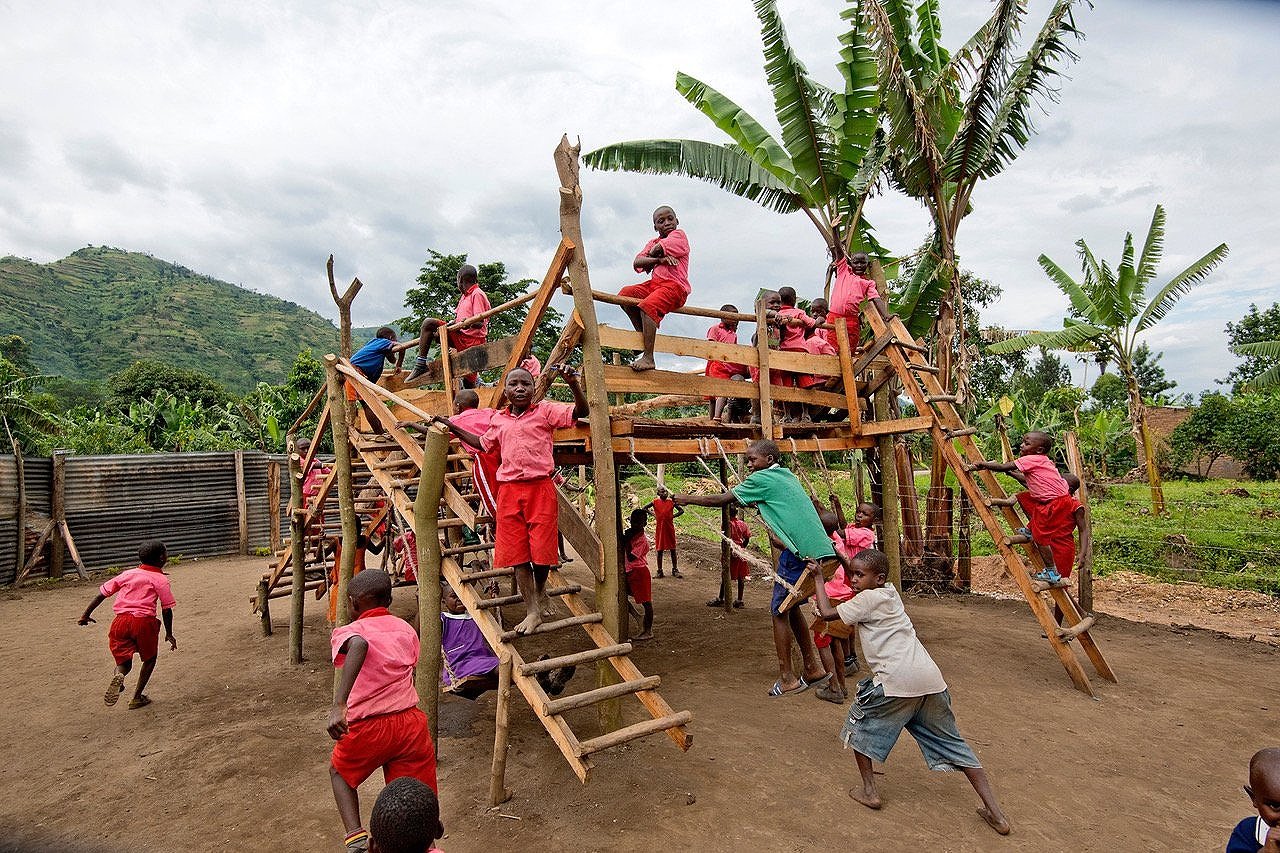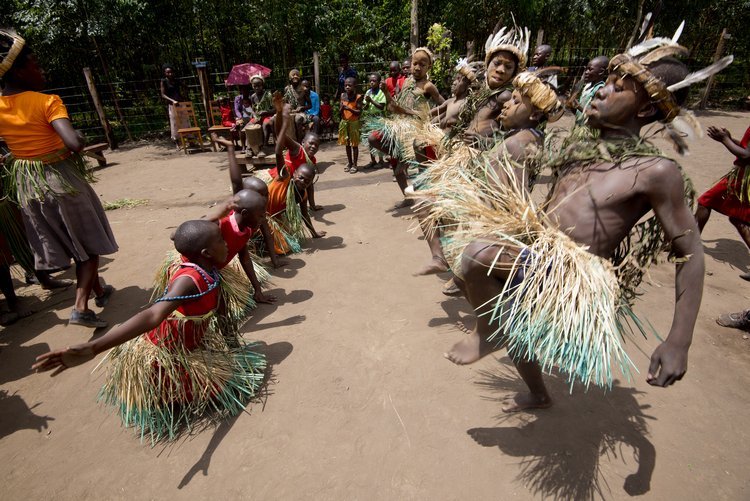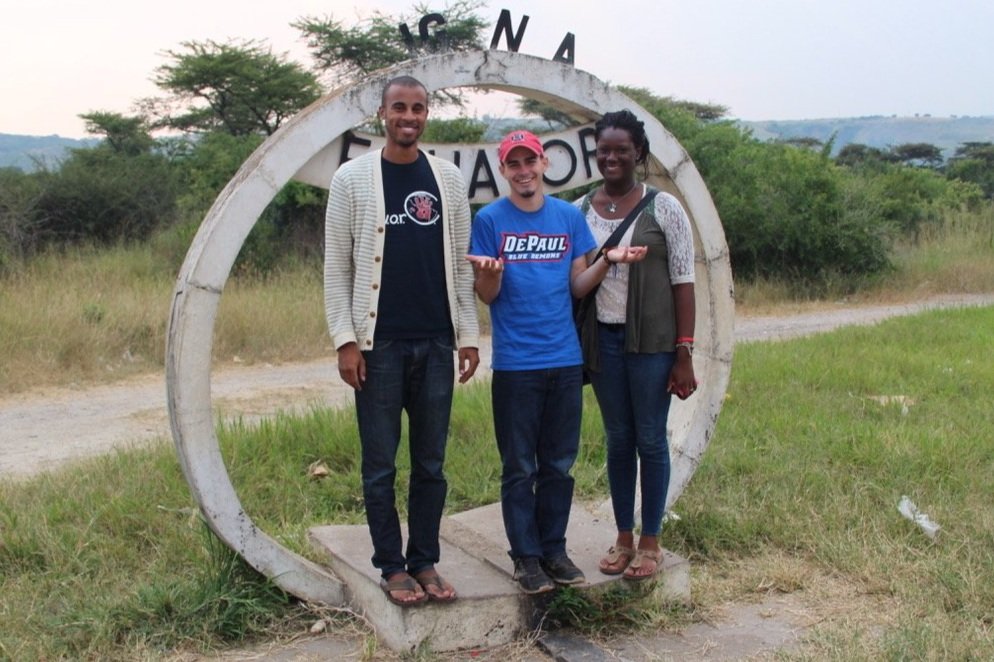Rwenzori Community Eco-tourism Project

Rwenzori Community Eco-tourism Project Tour
The Crooked Trails grant, gifted to the Rwenzori Community Eco-tourism Project, will build community well-being by providing travel-industry jobs, and tour guiding and conservation education and meaning for the indigenous communities around Mount Rwenzori National Park in southwestern Uganda near the border of the Democratic Republic of the Congo.
The Rwenzori Community Eco-tourism Project 2024 Update
In early 2023, PARC Uganda (what) received a $5,000 grant from Crooked Trails to launch the Rwenzori Community Eco-tourism Project. This project is a community walk through the foothill of Rwenzory Mountain National Park in Uganda. The walk would have options for a one-to-three-day trek, with multi-days providing overnight lodging and camping in communities. These stops would include households in the communities where
trekkers can experience cultural events, meet community members, and enjoy scenic attractions. The walk would start and end at the Shine Preparatory School and pass through Ugandan villages with typical rural homesteads with various traveler-interested stopping points along the trail.
The project will benefit the entire community by creating income and employment for site owners, guides, artisans, and the children at the Shine school.
The beginning stages have been completed, with buy-in meetings with local leaders and government alliances, community awareness meetings, project planning and project task ownership planned.
Training for porters and guides has started, with the intention that this education will continue throughout the project timeline to provide updated knowledge and skills regularly. The same is true for the Village Health Teams (VHTs).
The Shine Preparatory School has been a project hub, providing space and training rooms for most of the project activities. The second phase will continue through 2024 to move the Rwenzori Community Eco-tourism Project forward.
Community leaders are working with planning experts to plan the community resource trail, including its direction, stops along the way, and appropriate lodging and board for trekkers.
Communities have also seen the value in planting bamboo along the trail to aid in flood control and as a regenerative resource to be used to make products that can be sold to trekkers and local community members for additional income opportunities.
PARC Uganda and the Rwenzori Community Eco-tourism Project are excited to support local communities to increase income and conservation with this project and are moving forward with the many tasks it will take to support the successful completion of this project.
Ndungo Samuel, Director PARC-Uganda admin@park-ug.org https://parc-ug.org/
The Issue
This harmonious balance shifted when the Rwenzori Mount National Park was created in 1991. Indigenous communities were barred from removing anything from the park. To make matters worse, rebel militias occupied the surrounding mountains during a prolonged war. As a result of these and other societal pressures, the community now experiences high rates of HIV/AIDS, illiteracy, and unemployment. These previously thriving communities now depend entirely on subsistence agriculture for livelihood and survival – frequently leaving them on the edge of hunger and poverty. Some have turned to illegal activities like poaching and deforestation for survival, further threatening communities' economic and environmental health.
The Solution
Rwenzori Mountain National Park and Queen Elizabeth National Park are both UNESCO Heritage Sites. They are part of the Western Uganda Circuit - a safari route that includes the Kibale Forest and the Bwindi Impenetrable National Park. Together, these parks host close to 75,000 tourists a year.
PARC-Uganda has worked with local communities, local authorities, and the Kasese District Local Government since 2003 to amplify government efforts to improve access to education, health, and sustainable life-skill development opportunities for impoverished children living in the rural district of Kasese in western Uganda.
The Shine Preparatory School is a project of PARC-Uganda. It provides quality, low-cost educational services, and meals to orphans and vulnerable children who live near Rwenzori Mountain National Park. The school delivers resources to prepare children for the professional world and to contribute to sustainable development among the marginalized, underprivileged, and underserved communities.
PARC-Uganda is founded by and managed by people born, raised, and current residents of communities near the national parks. They are committed to contributing to needed change in their community. All decision-making process, including project identification, is done through participatory rural appraisal – community engagement meetings, community priority selection/ ranking, and community action planning.
The Project
PARC-Uganda started the Rwenzori Community Eco-tourism Project to tap into the revenue generated by tourists by offering community tours outside the Rwenzori National Park. The Rwenzori Community Eco-tourism Project is a three-to-nine-hour community walk-through rural Ugandan communities in the foothills of Rwenzori
Mountain National Park. It includes options for camping and stops at households in the community where tourists can experience cultural events and community life. The walk starts and ends at the Shine Preparatory School. The project will benefit the entire community by creating income and employment (site owners, guides, women, and children making crafts) and the children at Shine School.
PARC-Uganda’s aim is not only to increase household incomes but also to enhance the community's ability to conserve the nature and heritage of the indigenous cultures and support the Shine School. This project will connect tourism, adventure, culture, and conservation to increase community well-being. Doing so will allow tourists to experience community life and appreciate the daily lives of the locals.
What It Will Take
PARC-Uganda’s work has led to higher literacy rates among women and a decline in illegal activities. Crooked Trails has provided a $5,000 grant to help drive even more important positive change through this project. The project requires a total of $6490, and the remaining $1,490 will be met through the LUENA Foundation and local community contributions.
Help Raise Money!
Support this important cause by creating a personalized fundraising page







